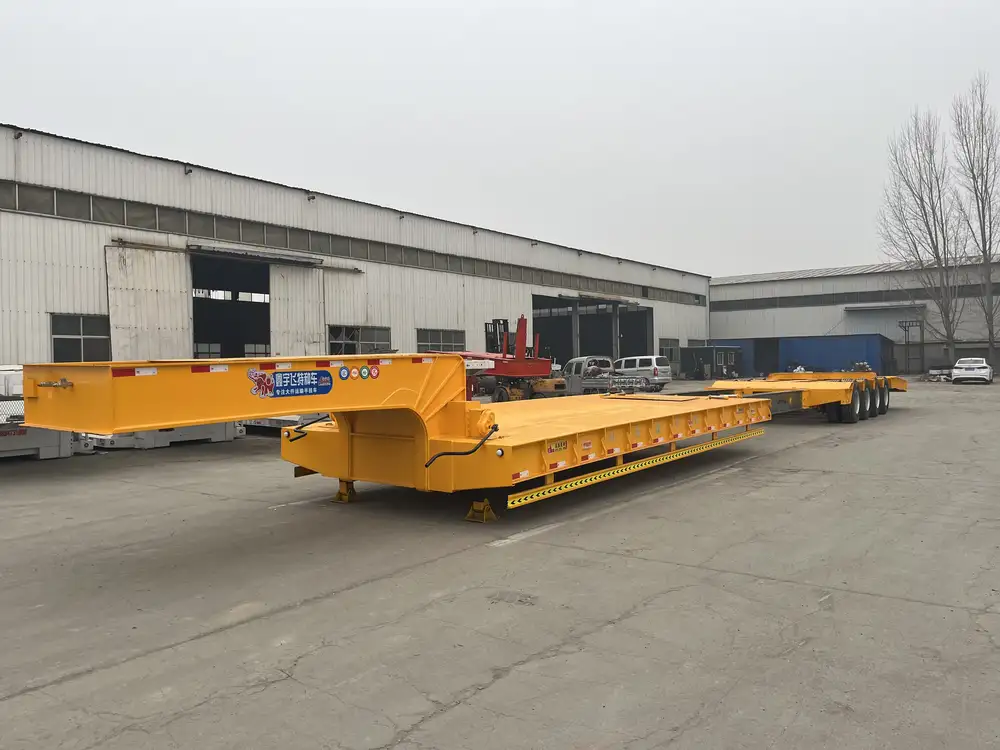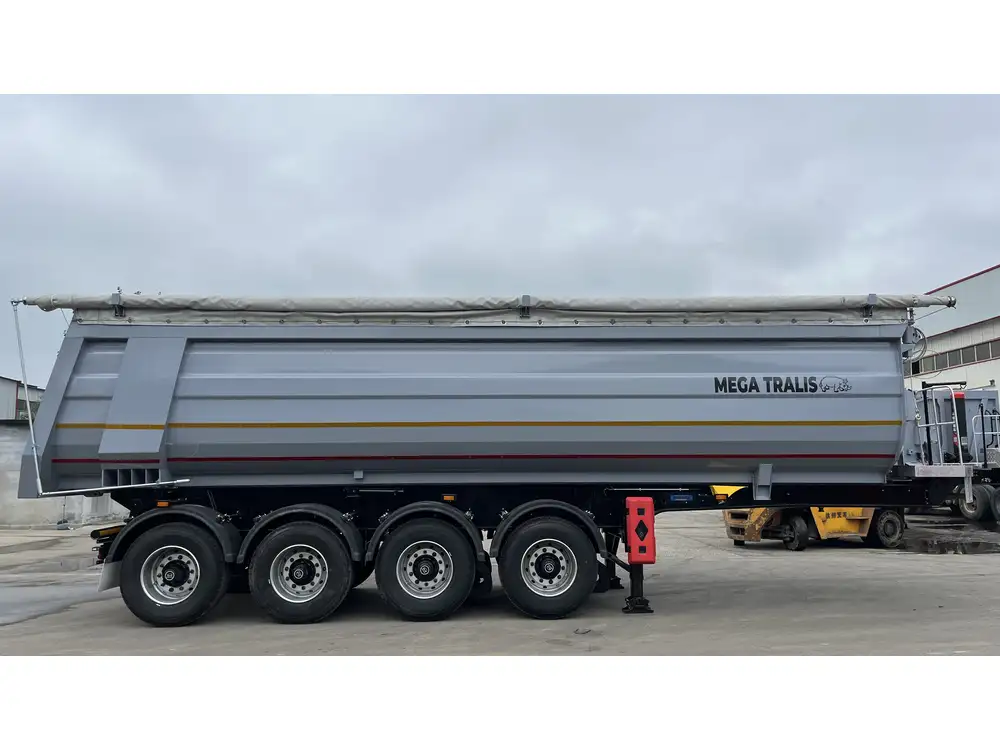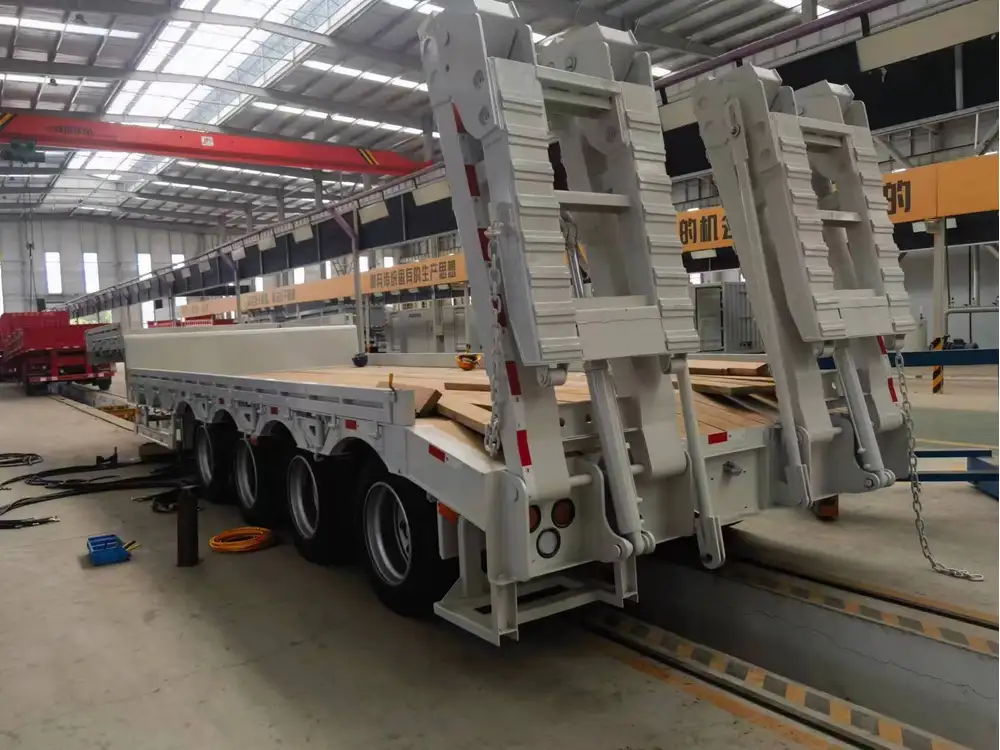When planning a move or transporting goods, knowing the weight of the trailer you intend to use is crucial. This not only pertains to legality, safety, and performance but also to ensuring you’re selecting the right trailer for your specific needs. Herein, we will delve deep into the various types of U-Haul trailers, their weights, and the implications of these weights on your hauling experience.
Overview of U-Haul Trailers
U-Haul offers a diverse range of trailers designed for different types of hauling needs. Here’s a snapshot of the types of trailers and their corresponding weight classes:
| Trailer Type | Cargo Capacity | Empty Weight | Gross Vehicle Weight Rating (GVWR) |
|---|---|---|---|
| Utility Trailer | Up to 2,400 lbs | 850 lbs | 3,200 lbs |
| Cargo Trailer (4×8) | Up to 1,500 lbs | 840 lbs | 2,500 lbs |
| Cargo Trailer (5×8) | Up to 1,600 lbs | 900 lbs | 2,600 lbs |
| Cargo Trailer (6×12) | Up to 2,500 lbs | 1,300 lbs | 3,500 lbs |
| Car Tow Trailer | Up to 5,290 lbs | 2,200 lbs | 7,200 lbs |
| Bike Hauler | Up to 2 bikes | 500 lbs | 2,500 lbs |
Understanding Weights
Weights can be confusing, especially when dealing with trailers. It is vital to recognize the following terms:
Empty Weight (Unladen Weight): This is the weight of the trailer without any cargo. It’s critical for assessing how much additional weight you can safely load onto the trailer.
Gross Vehicle Weight Rating (GVWR): This indicates the maximum weight the trailer can safely carry, which includes both the empty weight and the cargo. Understanding the GVWR helps ensure you don’t exceed safe hauling limits.

Importance of Knowing Trailer Weights
Safety Considerations
Exceeding the weight limit can lead to severe risks such as loss of control, increased stopping distances, and tire blowouts. When trailers are not loaded correctly, they can become unstable and dangerous, especially at high speeds or during inclement weather. Understanding your trailer’s weight limits protects you and other road users.
Vehicle Compatibility
The towing capacity of your vehicle directly correlates with the weight of the trailer. Vehicles have specific limits on how much trailering they can handle. If a trailer exceeds your vehicle’s towing capacity, it can lead to significant mechanical issues or accidents.
| Vehicle Type | Maximum Towing Capacity | Recommended Trailer |
|---|---|---|
| Compact Car | 1,000 lbs | 4×8 Cargo Trailer |
| Midsize SUV | 3,500 lbs | 6×12 Cargo Trailer |
| Full-Size Truck | 12,000 lbs | Car Tow Trailer |

Cost Efficiency
Selecting the correct trailer weight directly influences fuel consumption. Heavier loads require more energy to transport, leading to increased fuel costs. An incorrectly weighted trailer can contribute to unnecessarily high expenses.
What Is the Weight of U-Haul Trailers?
Understanding the specific weights of U-Haul trailers is imperative for effective planning. Below is a detailed list of common U-Haul trailers and their respective weights:
Utility Trailers
- Utility Trailer (5×8): Empty weight of 1,150 lbs, with a GVWR of 3,000 lbs. Suitable for small relocation or backyard projects.
- Utility Trailer (6×12): Empty weight of 1,650 lbs, with a GVWR of 3,500 lbs. Ideal for moving larger items around during local relocations.

Cargo Trailers
- 4×8 Cargo Trailer: Empty weight of 840 lbs, with a GVWR of 2,500 lbs. Great for small apartment moves.
- 5×8 Cargo Trailer: Empty weight of 900 lbs, with a GVWR of 2,600 lbs. Useful for transporting larger boxes or equipment.
- 6×12 Cargo Trailer: Empty weight of 1,300 lbs, with a GVWR of 3,500 lbs. Specifically designed for larger moves.
Car Tow Trailers
- Auto Transport Trailer: Capable of towing up to 5,290 lbs. Its empty weight is statistically heavier, around 2,000 lbs. It’s designed to accommodate larger vehicles and is a popular choice for long-distance moves.
How to Weigh Your Trailer
If you want to ensure you’re operating within weight limits, you can take the following steps to weigh your trailer:

Visit a Public Weigh Station
Typically, public weigh stations are available along highways and rural roads. They are usually free and offer a reliable means to gauge your trailer’s weight.
Use a Bathroom Scale
This method works for lighter trailers:
- Adjust your scale to zero.
- Place the trailer jack on the scale and lift until the weight is registered.
- Note the weight.
Employ a Load Scale
Many truck rental and supply companies offer load scales that can weigh combined vehicle and trailer setups.

Legal and Regulatory Considerations
License Requirements
Understanding your local laws regarding trailer weights and towing is essential. Some regions may mandate specific licenses for trailers over certain weight limits. Checking with DMV or the equivalent authority in your area will clarify any legal obligations.
Load Distribution
When loading a trailer, ensure the weight is evenly distributed. Overloading one side can lead to instability and potential accidents. Proper load distribution enhances traction and braking, contributing to safety and vehicle performance.

Frequently Asked Questions
How can I calculate the total weight I am towing?
To calculate your total towing weight:
- Consider the empty weight of the trailer.
- Add the weight of the cargo you plan to carry.
- Ensure that this sum does not exceed the trailer’s GVWR.
What if I exceed the GVWR?
Exceeding the GVWR poses severe risks including accidents, increased vehicle wear, and potential legal penalties. It is always best to err on the side of caution and ensure that neither the trailer nor your vehicle is overloaded.

How often should I check trailer weights?
Regular checks before long hauls are crucial. Weather conditions, load adjustments, and mechanical changes over time can also affect weights, so it’s beneficial to perform checks periodically.
Conclusion
Understanding and managing U-Haul trailer weights enables safer and more efficient moving experiences. By knowing the specific weights of your chosen trailers, comprehending the legal implications, and adhering to safety protocols, you can protect yourself, others on the road, and your valuable cargo. Always plan meticulously, check local regulations, and never underestimate the importance of trailer specifications in your hauling efforts. Remember, informed decisions lead to successful moves and fewer headaches down the road.



